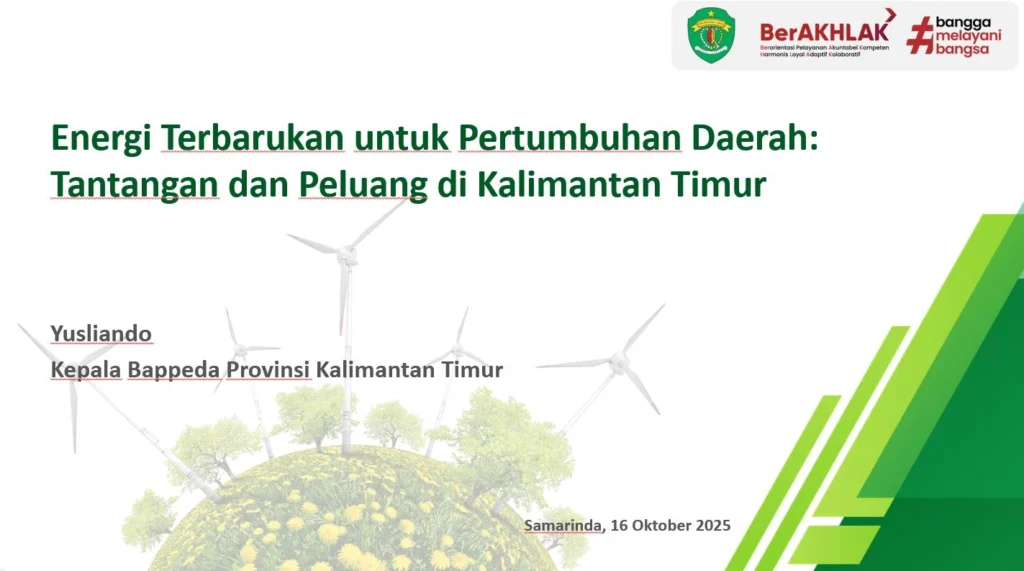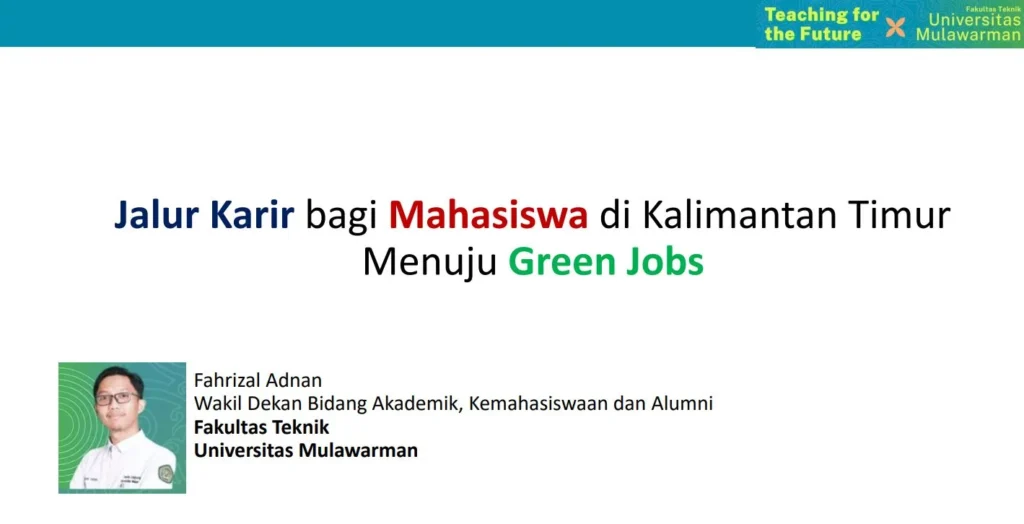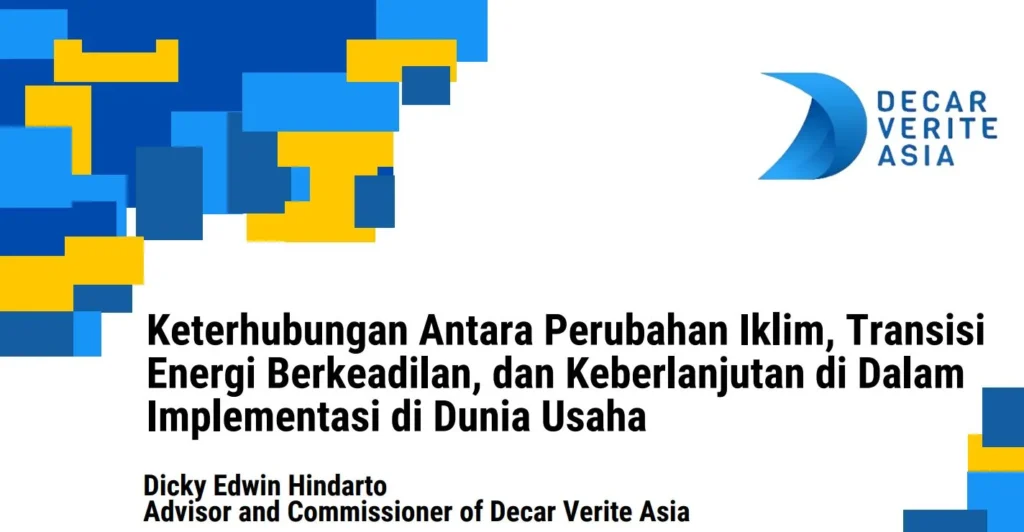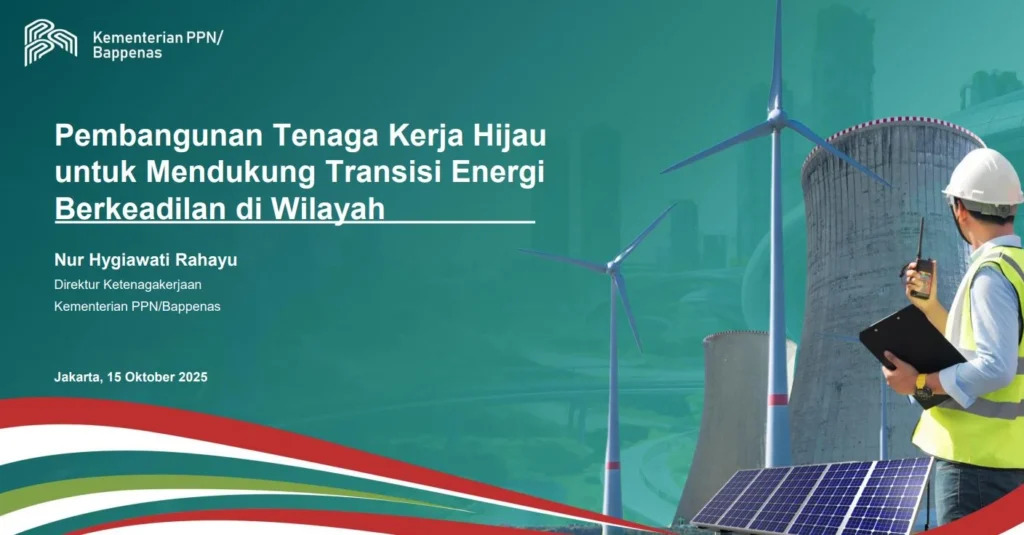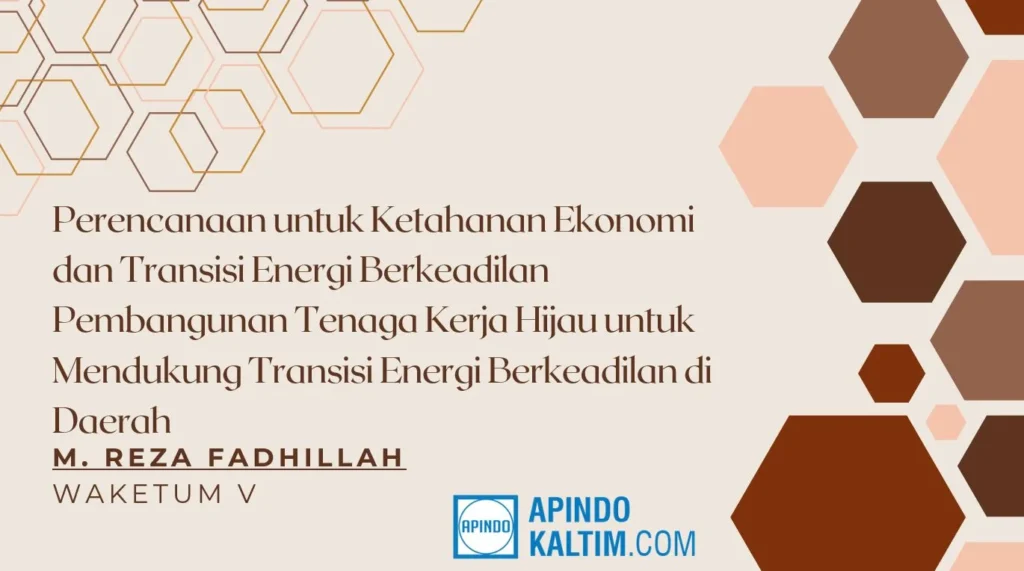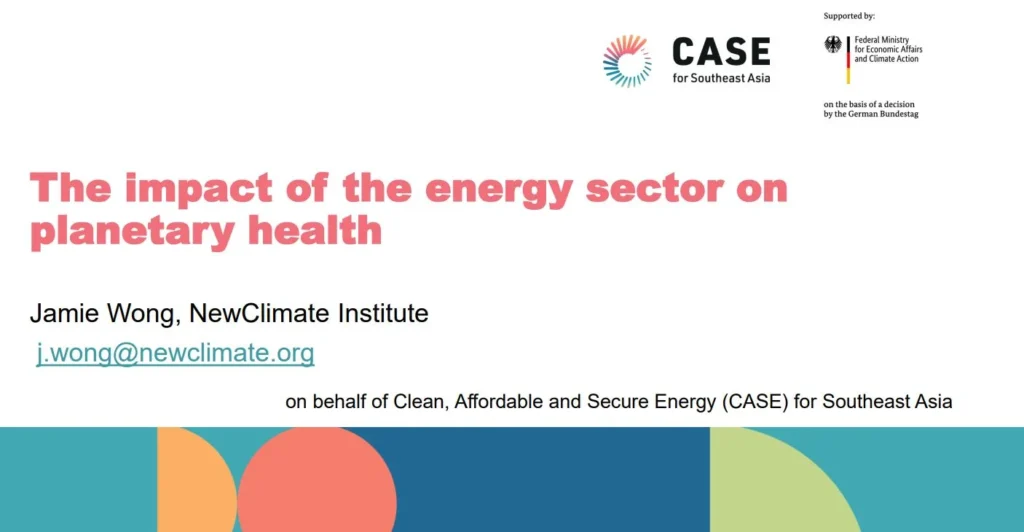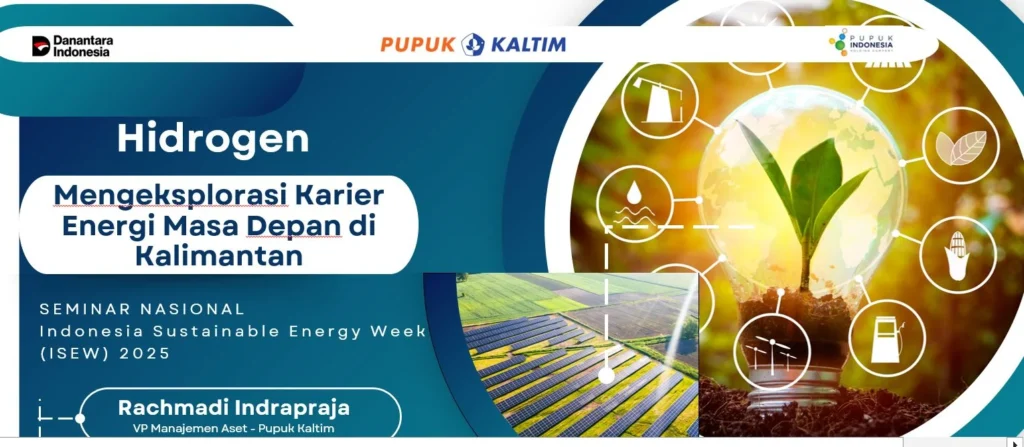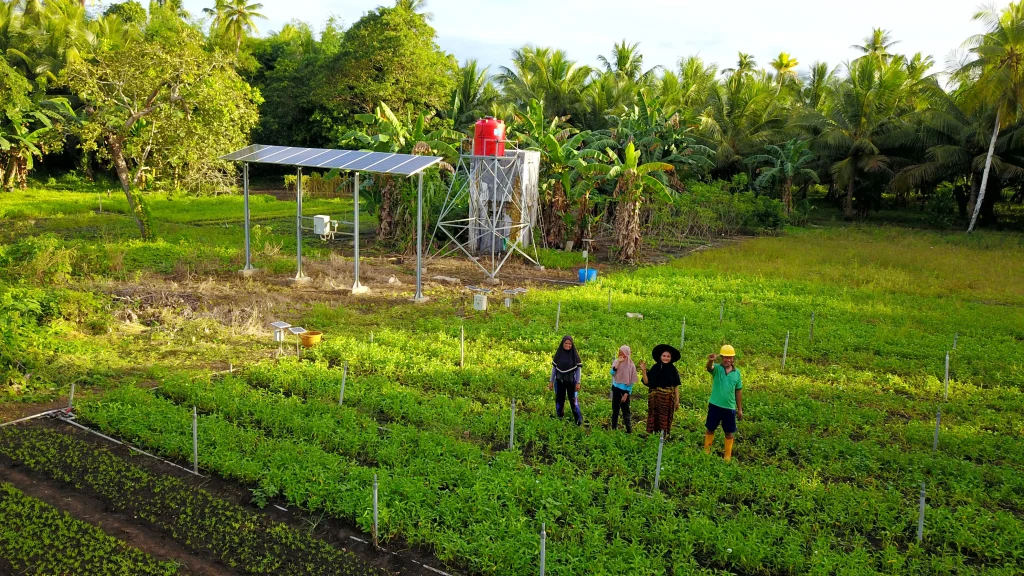
Clean, Affordable and Secure Energy for Southeast Asia (CASE) – Indonesia Component
Status
Ongoing
Overall Project Duration
2020-2027
Commissioner
German Federal Ministry for Economic Affairs and Climate Action (BMWK), through International Climate Initiative (IKI)
Political Partner
Directorate of Transmission, Electricity, and Aerospace (Dit. TKKA) – Ministry of National Development Planning/Bappenas
Cooperation Partners
Coordinating Ministry for Economic Affairs (Kementerian Koordinator Bidang Perekonomian), Directorate General of Electricity – Ministry of Energy and Mineral Resources (DJK – Kementerian ESDM), National Energy Council (Dewan Energi Nasional/DEN), Financial Services Authority (Otoritas Jasa Keuangan/OJK), The Indonesian Chamber of Commerce and Industry (Kamar Dagang Indonesia/KADIN), Indonesian Employers’ Association (Asosiasi Pengusaha Indonesia/APINDO), Local government, Academia
Implementing Organization
GIZ
Project page on organization website
Project Documents and Links
Background
The “Clean, Affordable and Secure Energy for Southeast Asia” (CASE) project aims to support a shift in the power sector toward an evidence-based energy transition aligned with the Paris Agreement goals. In Indonesia, it is implemented in collaboration with the Institute for Essential Services Reform and the Directorate of Electricity, Telecommunications and Informatics (Bappenas). The project draws upon existing and new research to generate insights grounded in national contexts, which help shape strategic narratives around renewable energy, energy efficiency, power sector decarbonization, and sustainable energy finance.
CASE is also an aligned programme under the Energy Transition Partnership (ETP)—a multi-stakeholder alliance of international donors, philanthropies, and partner governments committed to accelerating the energy transition and advancing sustainable development goals in Southeast Asia. The ETP emphasizes strengthening the policy environment, expanding public and private investments, improving grid integration of renewable energy, and fostering knowledge, capacity, and public awareness related to energy transition.
By working through both national and regional structures, CASE promotes inclusive dialogue, provides technical and policy support, and builds momentum around long-term, low-carbon development pathways. This integrated approach helps ensure that national ambitions are not only met but scaled up through enhanced coordination, stakeholder engagement, and evidence-based solutions.
Project Approach
The CASE project adopts a collaborative and evidence-based approach to drive the energy transition in Southeast Asia. At its core, the project focuses on generating new research and analysis grounded in national contexts to improve the credibility and relevance of policy recommendations. This approach enables decision-makers to better understand the trade-offs and opportunities in transforming their energy systems toward cleaner and more sustainable models.
To ensure inclusive and informed policymaking, CASE applies a joint fact-finding methodology that engages diverse stakeholders through structured dialogues, transparency initiatives, and consensus-building processes. The project also facilitates technical and policy support to strengthen institutional capacity and foster cooperation across government agencies, academia, civil society, and the private sector.
A strong emphasis is placed on communication and public engagement. Through awareness campaigns and outreach efforts, CASE aims to build societal support for the energy transition, shifting public discourse toward long-term sustainability. The combined efforts across research, stakeholder collaboration, and strategic communication are designed to accelerate power sector decarbonization and unlock greater investment in renewable energy and energy efficiency
Desired Impacts
The CASE project has achieved a broad and measurable impact across policy influence, capacity building, and public engagement. Its research outputs include 30 new studies and 3 tools, which have been widely referenced and used to inform energy sector planning. A major milestone is the successful development and active use of the Southeast Asia Information Platform for the Energy Transition (SIPET), which has attracted over 50.000 visitor, and serves as a key resource hub for stakeholders across the region.
The project has fostered strong cross-sectoral engagement, involving more than 100 non-energy government bodies. It has also strengthened collaboration with civil society, with more than 90 CSOs and NGOs participating in workshops, and 7 times national level of energy transition dialogues being convened in all countries. Policymaker capacity has been enhanced, involving more than 50 institutions of government’s energy stakeholder, while more than 180 academic institutions also have participate in extending the initiative’s reach.
CASE’s public awareness efforts have reached approximately more than 78 million people, which contributing to increase of media coverage favouring the energy transition. These outcomes reflect the project’s comprehensive approach grounded in evidence, driven by collaboration, and committed to an inclusive energy transition in Southeast Asia.
Project Activity Areas (Outputs)
Research and Evidence
The evidence base for an energy transition in SEA is improved
Transparency and Mapping
Synergies between different energy transition activities in the region are maximized due to increased transparency and cooperation
Dialogue Non-energy sector
The dialogue on energy transition within government bodies is improved
Technical Assistance (energy)
The capacities of key energy sector stakeholders to undertake an energy transition are strengthened
Promoting public discourse
A public discourse on energy transition is established
Project Publications
Tools
SEA Information Platform for the Energy Transition (SIPET)
The Southeast Asia Information Platform for Energy Transition (SIPET) is a one-stop platform for information and knowledge exchange about the energy transition in the region. SIPET aims to be a central launch pad for energy transition stake holders to facilitate dialogue and promote coordination in the Southeast Asia power sector.
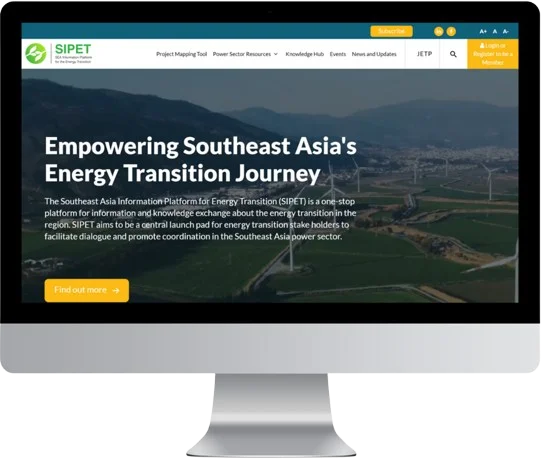
Bio DB
BioDB is a useful website for providing general information, encouraging discussion and conversation on the topic of bioenergy from agro-industrial waste. The data and information presented were collected by the Strategic Exploration of Economic Mitigation Potentials through Renewables (ExploRE) project, a project funded by the Federal Ministry for the Environment, Nature Conservation and Nuclear Safety (BMU), Federal Republic of Germany, in collaboration with the Ministry of Energy and Mineral Resources (ESDM) of the Republic of Indonesia, and implemented by the Deutsche Gesellschaft für Internationale Zusammenarbeit (GIZ)
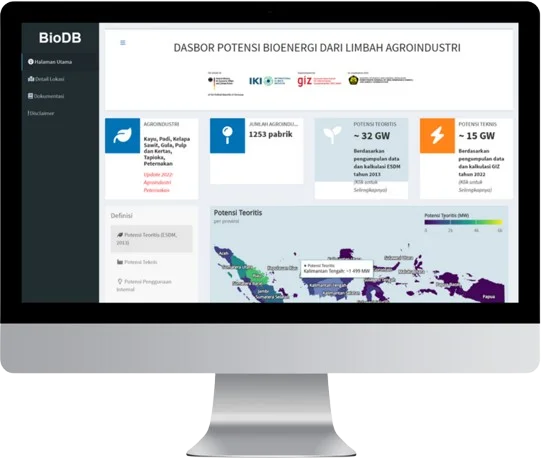
IKI JET
The global energy transition away from coal to renewable energy is threatening local livelihoods, economic activities and jobs, but also holding opportunities for sustainable, low carbon development. The project aims at supporting key stakeholder of coal regions to plan for and implement regional just energy transition pathways away from coal and towards a low-carbon energy system. Focusing on the regional economic transformations, the project works with government, industry, unions, communities, civil society, and academia. It supports interregional peer-to-peer exchange, learning, and policy dialogue in an international network and information sharing via a knowledge hub. In Indonesia, it supports the development of specific transition plans in two coal regions. In Colombia, it supports the development of the concept and framework for energy communities and the implementation of just and inclusive energy communities in César and la Guajira.
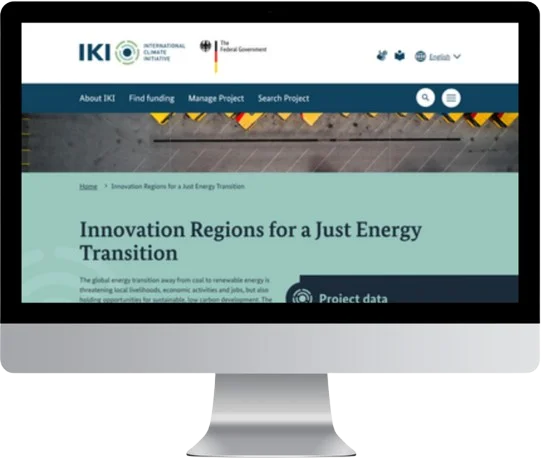
CASE for Southeast Asia
The “CASE for Southeast Asia” website is dedicated to the promotion of clean, affordable, and secure energy transitions across Southeast Asia. The website focuses on the provision of resources, the conducting of research, and the facilitation of collaborative projects in countries such as Indonesia, Thailand, the Philippines, and Vietnam, with the aim of supporting energy transition efforts. The platform highlights the challenges and opportunities in the region’s energy sector, while sharing knowledge, best practices, and policy recommendations aimed at advancing the transition to renewable energy and sustainable development
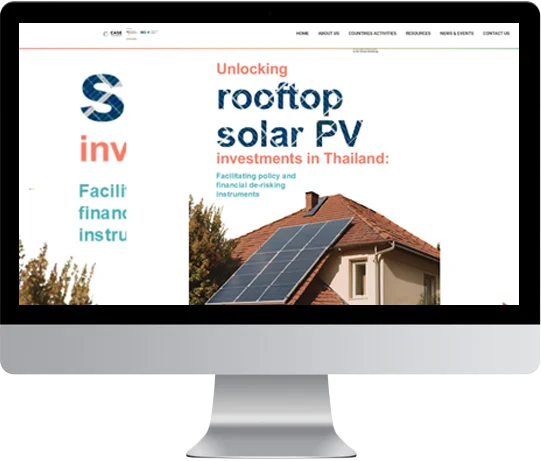
Contact
Project Address
De Ritz Building, Floor 2
Jl. HOS Cokroaminoto No. 91, DKI Jakarta, Indonesia
Deni Gumilang
Implementation Manager, CASE Indonesia
